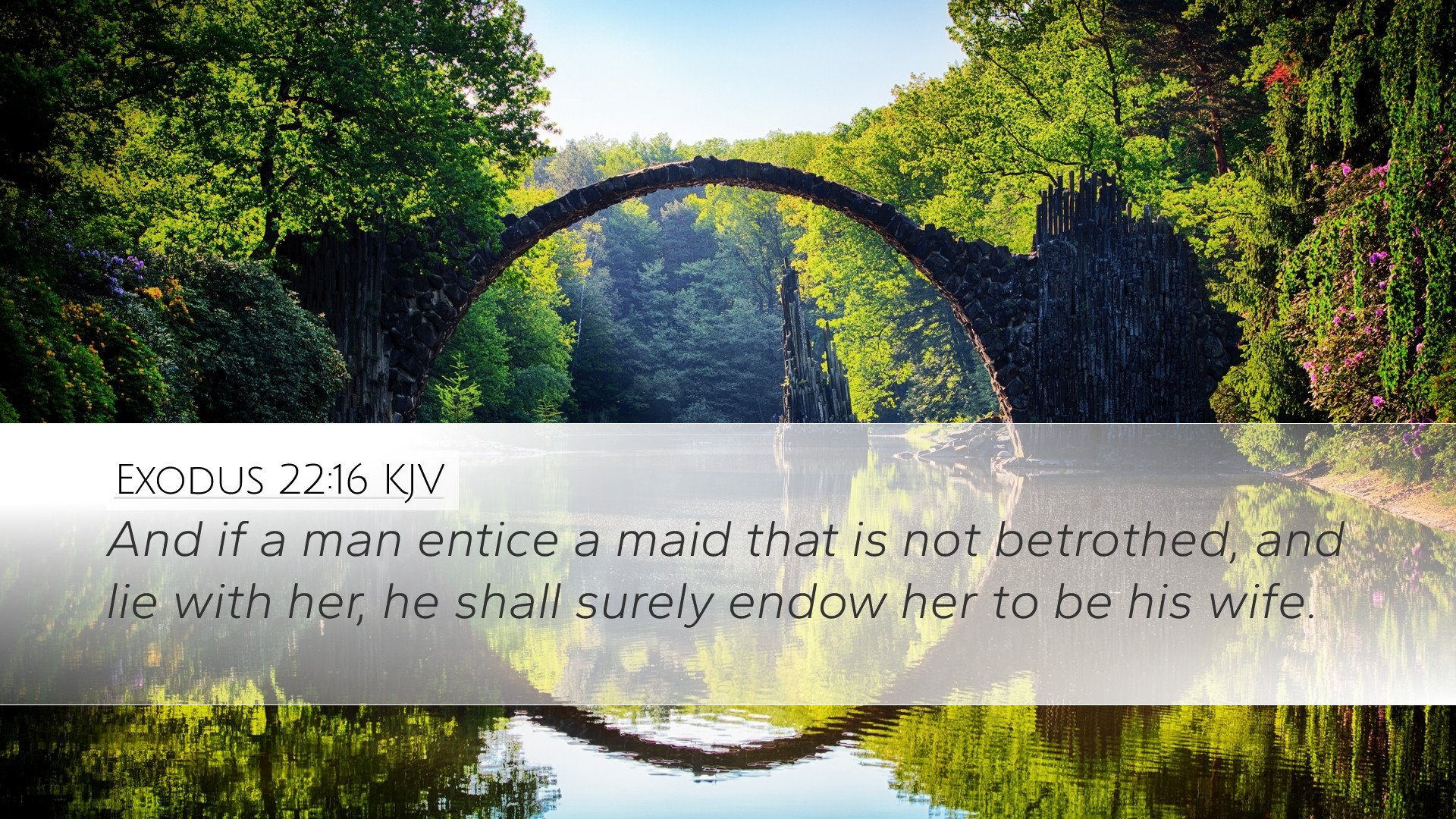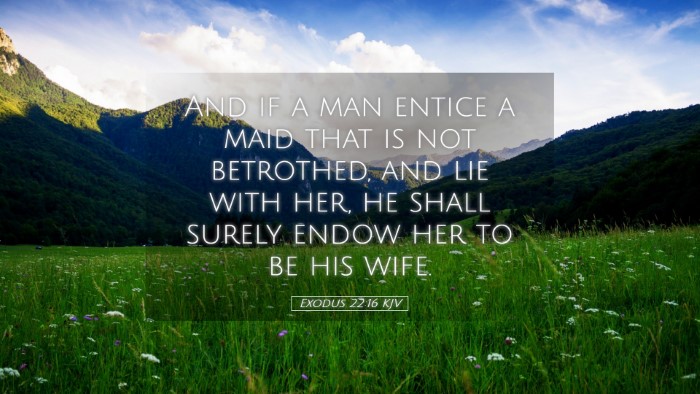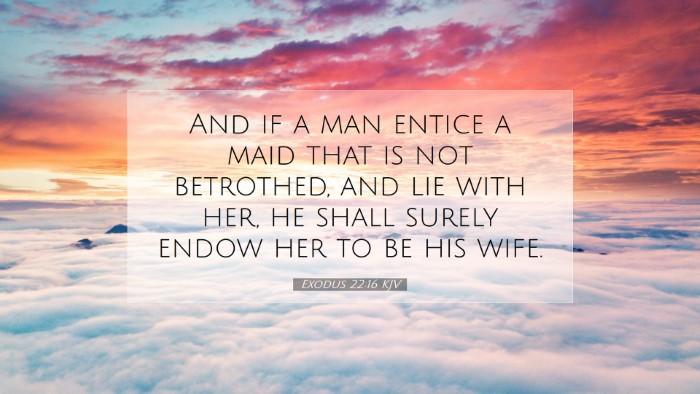Commentary on Exodus 22:16
Verse: “And if a man entice a maid that is not betrothed, and lie with her, he shall surely endow her to be his wife.”
Introduction
This passage from Exodus 22:16 addresses serious moral and social issues within the context of ancient Israelite society. It underscores the sanctity of marriage, the protection of women, and the responsibilities of men towards their sexual conduct. Public domain commentaries such as those by Matthew Henry, Albert Barnes, and Adam Clarke provide depth and varied insights on this verse. The following sections will summarize their key observations and interpretations.
Contextual Analysis
The laws found in Exodus, including this verse, were given to the Israelites following their liberation from Egypt. They were not merely legal statutes but reflections of God’s character and His desire for righteousness among His people. Specifically, these regulations were designed to maintain social order and protect individuals, particularly women, who might be vulnerable to exploitation.
- Moral implications: The focus on seduction and its consequences indicates the broader aim of preserving communal integrity and moral purity.
- Social structure: Marriage was a significant institution, and this law underscores the importance of ensuring that relationships built upon intimacy had a foundation of commitment.
Insights from Matthew Henry
Matthew Henry interprets this commandment as an affirmation of the responsibility that a man bears towards a woman he has seduced. He emphasizes that this is not merely a matter of legal transaction, but rather reflects God’s deep concern for the dignity and security of women.
- Endowing her: Henry points out that the requirement to endow indicates serious intent, urging that casual relationships are unacceptable; if a man has coerced or seduced a woman, he must take his responsibilities seriously.
- Protection of the innocent: This law was intended to protect young women from being treated as mere objects of desire, placing the onus on the man to provide for her future.
Insights from Albert Barnes
Albert Barnes expands on the societal implications inherent in this law, noting that it serves as a deterrent against promiscuity and encourages honorable conduct among men.
- Enticement and Responsibility: Barnes stresses that the act of enticing indicates a willful engagement that cannot be dismissed lightly. The man’s obligation to marry is a safeguard against exploitation.
- Contemporary relevance: Barnes urges the reader to understand that such principles of accountability remain timeless, applicable in the modern context of relationships and integrity.
Insights from Adam Clarke
Adam Clarke offers a scholarly perspective, contextualizing this law within the larger framework of ancient Near Eastern legal practices. He discusses how this regulation demonstrates a progressive understanding for its time.
- Comparative law: Clarke indicates that similar laws existed in various cultures, suggesting a common recognition of the need for protecting women’s rights.
- Nature of Consent: He reflects on the implications of consent versus coercion in relationships and how this law seeks to frame sexual conduct within the covenant of marriage.
Theological Reflections
From a theological perspective, Exodus 22:16 speaks profoundly about divine justice and love. This passage illustrates God’s concern for moral order and relational fidelity, which are critical components of the faith community.
- Covenant security: The stipulation that a man should endow the woman he has taken advantage of mirrors the covenantal nature of God’s relationship with His people, highlighting commitment over casual encounters.
- Modern applications: This verse and its commentary invite reflection on contemporary issues of consent, sexual ethics, and the structure of relationships in today’s society.
Conclusion
Exodus 22:16 remains a critical text for understanding the interplay of law, morality, and social justice in the biblical narrative. Insights from Matthew Henry, Albert Barnes, and Adam Clarke provide a rich tapestry of interpretation that can guide pastors, students, and scholars in grappling with issues of sexual ethics and relational integrity. It beckons the faithful to uphold the values of honor, protection, and accountability in all aspects of relationships.


